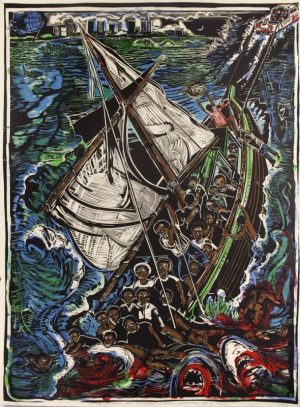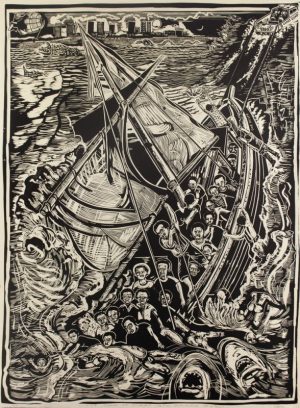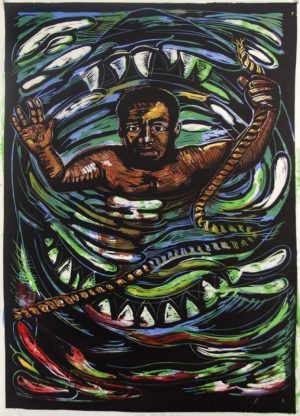A Texas physician and psychiatrist, Dr. Avery worked for more than 20 years as a psychiatrist in a large HIV/AIDS clinic. All the while Dr. Avery turned to printmaking to comment on the social conditions he observed around him. His stark graphic imagery captures human rights abuses, social responses to disease, death, sexuality, and the body. Avery often references art historical works, and his Tamarind prints quote such monumental works as Theodore Gericault’s The Raft of the Medusa, 1824; John Singleton Copley’s Watson and the Shark, 1778; and Rembrandt’s Christ in the Storm on the Sea of Galilee, 1633.
Avery’s Watson and the Shark reinterprets the epic narrative with a Black figure in the water, hands raised for help, encircled by the shark’s open jaws and a slack rope that underscores there is no rescue effort underway. This work was created in response to the harsh detention policies of the Reagan administration, and the plight of Haitian refugees during the 1980s.



